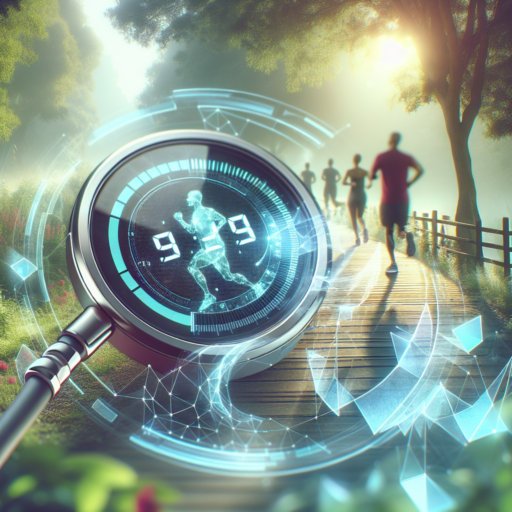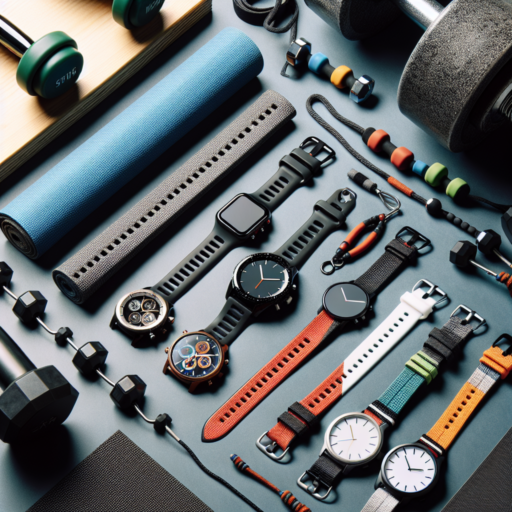Which band is best for heart rate monitor?
When it comes to finding the best band for heart rate monitoring, the market offers a plethora of options. However, selecting the right one involves understanding both your fitness goals and the features that various bands provide. High-accuracy heart rate tracking has become a fundamental expectation in fitness bands, enabling users to maximize their workouts, monitor daily activities, and keep a close eye on their overall health.
Key Features to Consider
- Accuracy: The precision of the heart rate sensor is paramount. Optical heart rate sensors are common, but their accuracy can vary depending on the band’s design and fit.
- Battery Life: Long battery life ensures that you can track your heart rate continuously without frequent charges, making the device more reliable and convenient.
- Comfort and Design: A band that feels comfortable on your wrist for extended periods is essential, especially for continuous heart rate monitoring.
Several brands stand out for their reliability and precision in heart rate monitoring. Brands like Fitbit, Garmin, and Apple have developed bands with advanced sensor technology that not only track heart rate with high accuracy but also offer a comprehensive view of your health by integrating with various fitness and health apps. These bands are designed keeping in mind the user’s comfort and the necessity for accurate, real-time heart rate data.
Understanding your specific needs and the unique features each brand offers is crucial in choosing the best band for heart rate monitoring. Whether it is for high-intensity interval training (HIIT), marathon training, or daily health tracking, there is a band out there that fits your specific fitness requirements and lifestyle. Ensuring the band’s sensor accuracy, battery life, and comfort can significantly influence your decision in selecting the right heart rate monitor.
What is the best wearable device to monitor your heart?
Identifying the best wearable device to monitor your heart involves examining a range of factors including accuracy, comfort, functionality, and user experience. With the myriad options available in the market, pinpointing a single device as the absolute best can be challenging. However, certain devices stand out due to their exceptional precision, comprehensive heart-related metrics, and overall reliability.
Key Features to Consider
- Accuracy: The primary purpose of a heart monitoring device is to provide accurate heart rate data. The best devices offer near medical-grade precision.
- Functionality: Look for devices that measure not only heart rate but also other cardiovascular indicators like heart rate variability (HRV), oxygen saturation levels, and even stress levels.
- User Experience: A device should be easy to use, with a clear interface and seamless synchronization with smartphone apps for data tracking and analysis.
Among the leading brands, devices from companies like Apple, Fitbit, and Garmin often receive high praise for their comprehensive health monitoring features. These wearables not only track your heart rate continuously but also offer insight into broader health metrics, ensuring a detailed overview of your cardiovascular health.
Ultimately, the best wearable device to monitor your heart is one that meets your personal health goals, lifestyle, and preferences. Assessing your specific needs and comparing available options based on the mentioned key features will guide you towards making an informed decision.
No se han encontrado productos.
How accurate are armband heart rate monitors?
The accuracy of armband heart rate monitors is a topic that garners considerable attention among fitness enthusiasts and health-conscious individuals alike. These devices, which have grown in popularity over the years, offer a convenient way to monitor heart rate in real-time, providing valuable insights into one’s cardiovascular health and workout intensity. However, the accuracy of these monitors can vary based on several factors such as the technology used, the placement on the body, and the individual’s skin type.
One of the critical components that influence the accuracy of armband heart rate monitors is the technology behind them. Most of these devices use optical heart rate technology, which measures the heart rate by shining a light through the skin to observe the blood flow. This method, while non-invasive and easy to use, can be affected by external factors like movement, ambient light, and even the tightness of the band, leading to potential discrepancies in heart rate readings.
Furthermore, the placement of the armbold affects its accuracy. Ideally, the armband should be worn snugly above the elbow, on the upper arm, for optimal heart rate detection. Misplacement or loose fit can cause the device to deliver inaccurate readings. Additionally, individuals with darker skin tones or higher levels of body hair may experience less accurate readings due to the interference these factors present with optical heart rate sensors. Manufacturers often advise on best practices for wear and use to mitigate these issues.
Which is the most accurate heart rate tracker?
Finding the most accurate heart rate tracker is crucial for anyone looking to optimize their health and fitness routines. This quest for precision has led manufacturers to constantly innovate and improve their devices, resulting in a multitude of options available on the market. When selecting a heart rate tracker, it’s essential to consider factors such as sensor technology, wearability, and compatibility with other fitness tools.
Many experts agree that optical heart rate sensors, found in most wearable fitness trackers and smartwatches, offer a good balance of accuracy and convenience for everyday use. These devices use light-based technology to monitor the flow of blood through your wrists, providing insights into your heart rate during rest and physical activities. However, for those seeking the pinnacle of accuracy, chest strap monitors remain the gold standard. Known for their direct heart rate measurement using electrical signals, chest straps are often recommended for professional athletes and serious fitness enthusiasts.
Brands like Polar, Garmin, and Fitbit are frequently mentioned when discussing high-accuracy heart rate trackers. Polar is renowned for its chest straps that cater to the needs of athletes requiring precise heart data. Garmin devices, on the other hand, are celebrated not only for their accuracy but also for their durability and array of features designed to enhance outdoor and fitness activities. Fitbit, popular for its user-friendly interface and comprehensive health tracking ecosystem, proves that accuracy can also be achieved without compromising on convenience. Each of these brands has its strengths, and the choice often boils down to personal preference and specific fitness goals.


